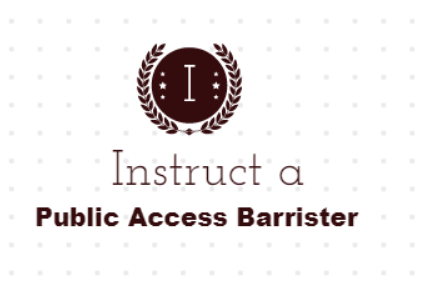The recent BBC investigation into Employee Assistance Providers (EAPs)[i], has forced organisations within the legal industry to evaluate how they are supporting employee mental health and to consider alternative approaches that allow their employees to access much needed and effective professional support.
Employee mental health has garnered increasing attention in recent years, especially since the pandemic, with stress, depression and anxiety areas of particular concern. Working within law is highly pressurised and competitive and this brings challenges that can exacerbate issues around mental wellbeing. Research reveals that over 80% of people in the legal industry have high levels of stress[ii], and 71% experience regular anxiety[iii]. Underpinning this is the recognition that people in this field are at high risk of burnout[iv], so the need for robust support is clear, with organisations looking for sustainable and cost-effective ways to support their workforce.
Employee Assistance Providers (EAPs) have stepped into the breach but organisations across the UK are finding their EAP services unable to cope with demand, with the case highlighted by the BBC the most public but far from unique.
Many private medical insurers have waiting lists of more than 2-3 months for accessing mental health services as well as other issues such as inadequate or unprofessional advice being offered to clients and vulnerable people being passed over for counselling sessions because of EAP quotas for numbers of sessions. If we add to that the background of delays created by an upturn on demand on NHS mental health services[v], with 1.8 million people are on waiting lists for support[vi], then this perfect storm of growing mental health issues and burnout across society combined with a lack of provision from the usual mental health support services is leaving employees without the support they need.
Lou Campbell, employee counsellor, wellbeing coach and programmes director of Wellbeing Partners says:
“It is no surprise that EAPs are struggling in the current climate. We exist in a world of prolonged stress and uncertainty – environmental, financial and political – and this coupled with the mental health legacy of the pandemic has created an unprecedented demand for mental health support that EAPs were not built to respond to.”
This reality is a serious concern for EAPs, HR teams and the people they support. Campbell continues:
“Stories of employees being palmed off by their EAP onto an already overwhelmed NHS are something that we hear every day and fatigued HR teams are being called upon to support distraught employees who have nowhere to turn”.
This amounts to a serious gap between support required and provision available. For the vast majority of employees who are referred onto the NHS by EAPs, mental health support remains elusive as the NHS has too small a mental health workforce to keep up with demand[vii]. The inability of EAPs to cope has a knock-on effect, further burdening an already overstretched mental health service, and leaving employees without support that is needed.
It is incumbent on those working in the legal industry to address the inability of EAPs to meet these demands, both for the duty of care they have for their employees and to ensure that their businesses continue to function effectively.
One option that is frequently being adopted by legal organisations is high quality in-house counselling support services where a small team of named mental health professionals work closely with the organisations’ staff. The highly experienced counsellors are perfectly placed to connect directly with individual employees in the workplace, giving a professional and supportive space for people to work through workplace and personal life issues.
These services can provide the time and focus that EAPs increasingly cannot and to offer recovery plans, tailored mental health support whilst highlighting organisational commitment to supporting mental health.
Campbell comments directly on this:
“Knowing that all staff members can be guaranteed support by a named, fully qualified professional, helps to relieve exhausted HR teams and provides a guarantee of quality care to employees. High quality specialist counselling support services ensure that all staff can be guided through all manner of workplace challenges, and properly supported with any mental health issues, by a known, trusted and experienced professional, in a guaranteed time frame”.
The use of in-house counselling means that smaller issues can be prevented from developing into crises and more complex issues receive the timely support they deserve. These sessions not only address issues in the short term but also build the framework and confidence that people need to maintain their mental health once the sessions are concluded, reducing likelihood of later relapses. In-house employee counselling needs to be seen not as a luxury, but an intelligent, supportive and economical response to mental health issues. It offers both short and long-term gains for individuals and organisations.
The mental health challenges of people in the legal industry can be acute. Long hours, high-professional standards, internal and external competition and workplace cultures that encourage over-working all contribute to mental health challenges that need to be addressed and supported. Organisations need to be fluid in how they manage this. Recognising the challenges faced by traditional avenues of support and responding effectively to them will help your organisation and the people within it as we all navigate the personal and professional challenges of modern life.
[i] https://www.bbc.co.uk/news/uk-68537252
[ii] https://www.abajournal.com/news/article/lawyers-report-high-level-of-satisfaction-with-their-jobs-but-stress-remains-an-issue-survey-finds#:~:text=Eighty%2Dthree%20percent%20of%20surveyed,survey%20findings%20by%20Law360%20Pulse.
[iii] https://www.abajournal.com/news/article/mental-health-initiatives-arent-curbing-lawyer-stress-and-anxiety-new-study-shows
[iv] https://www.lawcare.org.uk/latest-news/life-in-the-law-new-research-into-lawyer-wellbeing/
[v] https://nhsproviders.org/nhs-activity-tracker-2023/november-2023
[vi] https://nhsproviders.org/news-blogs/news/nhs-providers-responds-to-call-for-long-term-mental-health-plan
[vii] https://www.bma.org.uk/advice-and-support/nhs-delivery-and-workforce/pressures/mental-health-pressures-data-analysis




